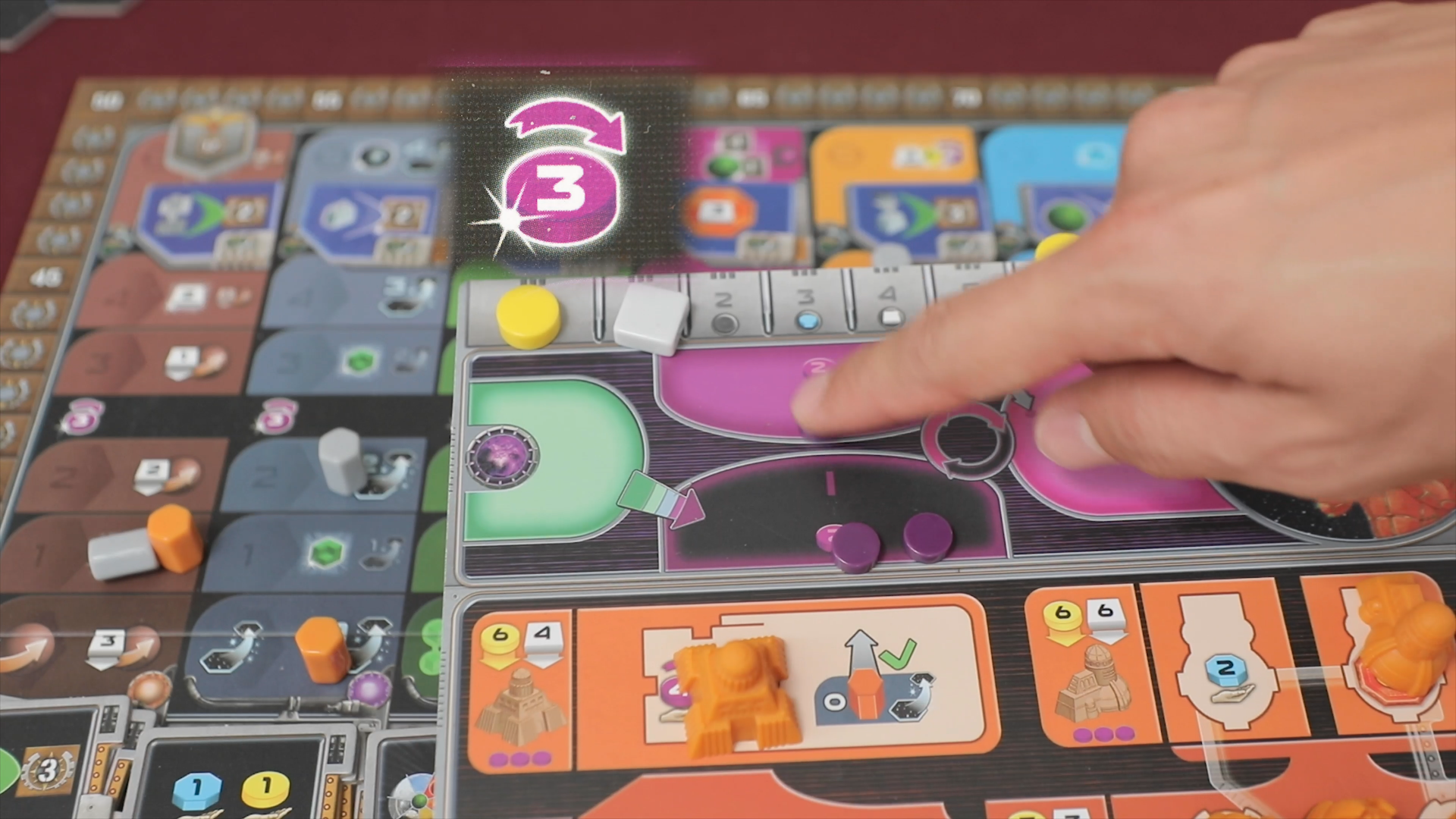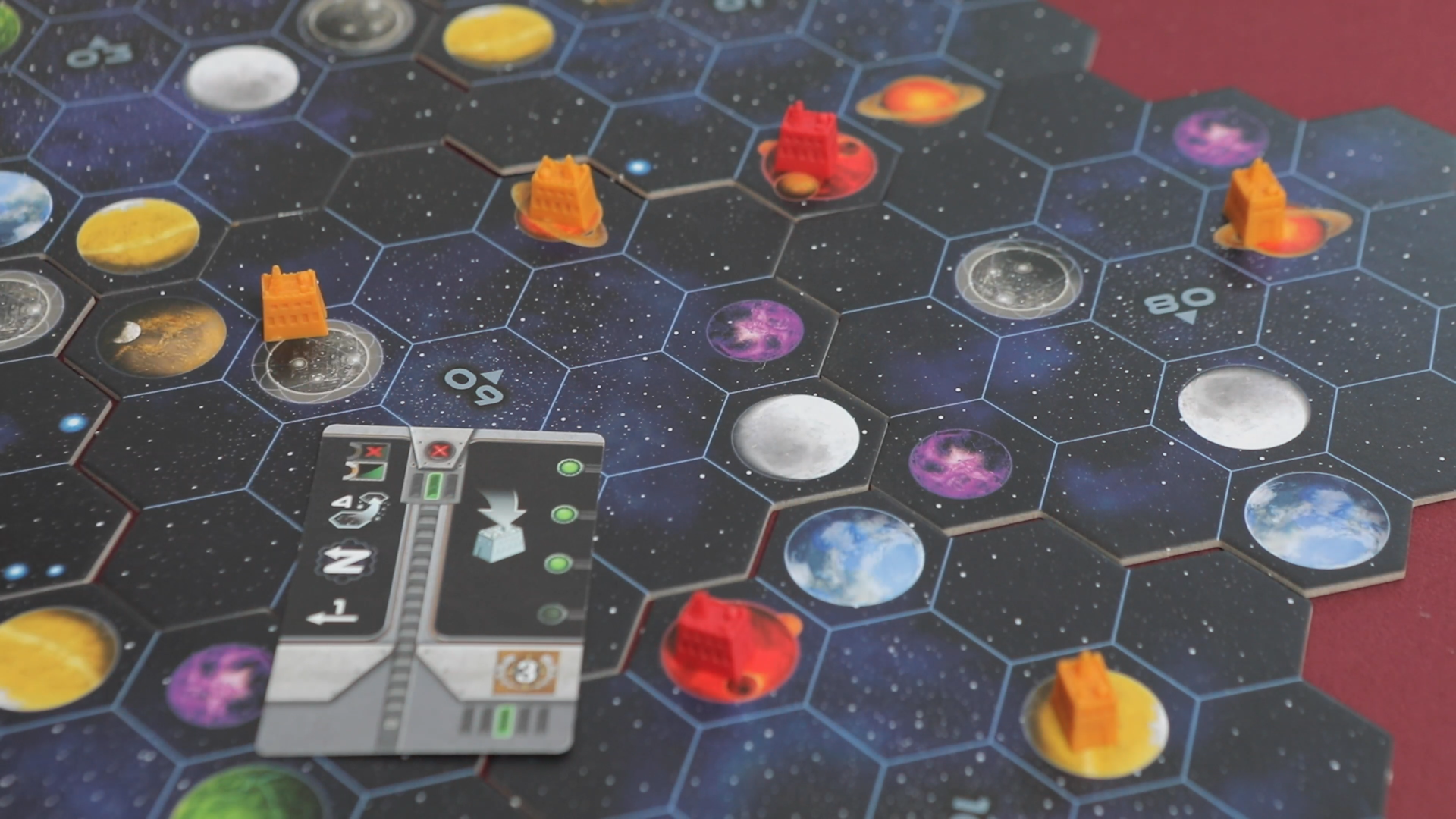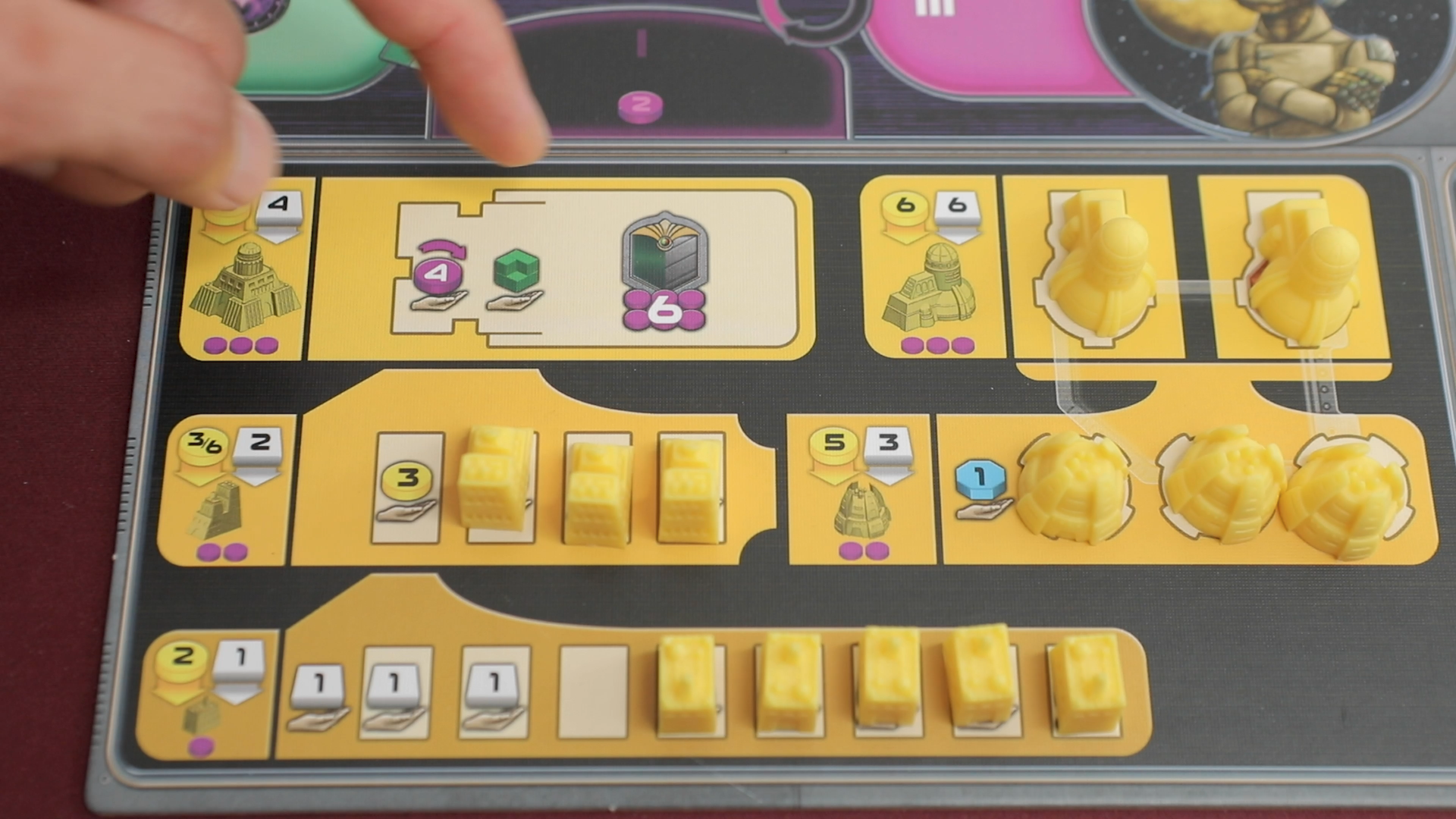Gaia Project Review
If you want hardcore space Euro, you’ve come to the right place.
Peacefully colonize and eventually federate as much of the galaxy as possible, with plenty of alien powers. Extreme strategical possibilities for 1-4 players. 1-4 hours.
Video published September 7th, 2021

Incredible, multi-faceted resource management.

Federate the galaxy with friends, or solo.

Pronounced, rich asymmetry for different passives, building abilities, and more.
Overview & How to Play
HARDCORE EURO HOOK: The goal of Gaia Project is to get the most intergalactic… VP (without violence).
Ok, that’s probably the least ‘normal’ feeling part of this game though, because the rest starts getting extraordinary. Everyone picks an incredibly nuanced alien faction, and while only taking one action a turn, the incredibly push and pull of multiple resources really hits you.
One of those resources is the ‘Power Token’ mechanic, where you have to charge purple discs on your player board. There’s a Tier 1 slot for these discs to start on, that charges all the way up to Tier 3, and once in Tier 3, those discs can be spent to buy resources, and then the discs reset to Tier 1. This is completely stolen from Terra Mystica, this game’s predecessor, and leads to very crunchy ways of thinking.
To actually get these points, players will be federating to connect all of their buildings on the map, as each alien civilization slowly colonizes the galaxy in their own way, spending resources to build certain buildings on certain planets. But wait, there’s more VP sources: there’s some point salad stuff going on here with grabbing points from technology, round bonuses, and end game bonuses.
Gaia Project takes place via 6 rounds, as players get income at the start of each, and the round ends once everyone passes, signaling that they no longer have any more actions they wish to do.
Pros
Space Academy miniatures. Punchy, clear icons. Massive player boards. This game is a whole lotta quality components, in a whole lotta plastic bags for a very efficient package, just like how you need to approach gameplay.
Before any further analysis, Gaia Project’s ‘Power Charging’ system cannot be overlooked. It really is a mini game in of itself, where you’re keeping an eye on those rotating purple discs to nab extra benefits. The charging restrictions, where you can’t push ahead to a future tier until you’ve emptied out your lowest tier of discs, has adding more purple discs actually be a bad thing sometimes. Adding more purple discs is like pushing a stronger, yet more unwieldy ocean liner.
The other more resources, like money, or coal, have some clever conversions of themselves. Resources all can become other resources at one point or another, you just have to do some special work to get there. That goes into how doing ANY action in this game, is a massive game of tug-of-war you’re doing, trying to balance the books well enough to afford your next big source of points.
Oh, and you’ll have a HUGE pool to choose from for points, namely Federating the galaxy, always keeping your brain whirring. Or how about continually researching up 6 different tracks to have the strategies of this game start to utter explode?
You must be asking about counterplay right, because this game may kind of look like some epic space opera, while simultaneously looking extremely math-y. Fortunately, Gaia Project is filled with potential for counterplay without direct conflict, like grabbing certain research first, or building on a planet on the map your opponent was about to colonize (the sinister move). This makes it so that you can never purely calculate everything in multiplayer, since the map will change before your very eyes.
This is all rounded out by 14, yes FOURTEEN nuanced factions! These each have their own appeal, as they influence the effects of certain buildings, have different starting resources that greatly dictate strategies, AND have a permanent passive! Whew, that’s a lot of asymmetry, and really skyrockets this replayability up.
And if you want to train, or just revel in the systems without someone waiting on the side, Gaia Project has one of the best solo implementations of a Euro we’ve ever seen, with a competitive AI that still keeps you on your toes.
Cons & Nitpicks
Gaia Project is a BEHEMOTH though in components and potential strategy, and its learning process does not help people start its brain crunching. The player aids are tiny things that are just a bunch of vague symbols of the 8 actions, that does not make ANY sense without continually referring to the rulebook. Such a deep yet rewarding game needs an introductory game to ease people into the crazy Power Cycling and various VP sources- after all, a good amount of players will have probably never played the predecessor Terra Mystica before, which shares many systems.
Oh, and game length! Chuckles. Your first game will take easily over 3-4 hours with 3 players, even when fully understood, because the game is incredibly complicated with PERFECT INFORMATION that can ice decisionmaking. You could argue that the better you get at Gaia Project, the more opportunities you see, and the longer it takes. Be prepared to set aside many hours.
There is also a very alarming fact that: you may kind of feel like playing you’re playing a solo game. There just doesn’t feel to be much interaction in general for how long this game is. There can be nasty interaction that is game altering, but doesn’t happen all the time, especially early game. You can totally just be locked in your own head most of the time in this game, trying to crack this efficiency puzzle.
Final Thoughts
No doubt about it whatsoever. This is A HARDCORE, DEEP game. And so it is going to have that mountainous barrier of entry that is annoyingly common in these heavy games, where you crawl through that rulebook till the end of a run.
To the seasoned Gaia Project veteran, this box is a delight full of extreme strategical possibilities, oozing with counter moves and has all the information for you laid out after setup. The EXTREME variance in opening game states is gonna be so awesome here. Eventually, you’ll learn that you might want to sit there and think for a bit before making any opening move.
Gaia Project just might not fill any game night desire of yours. It does not feel like a game you’re jumping at to create flashy memories with friends, but still requires a LOT of investment: it is so complex that the concentration pedal to the metal continually begs you to pay attention to it, to the game!

















